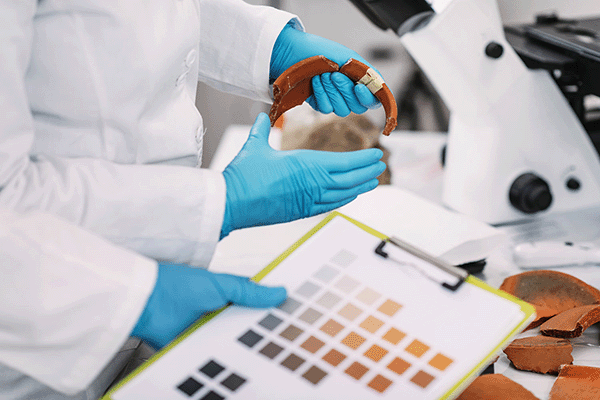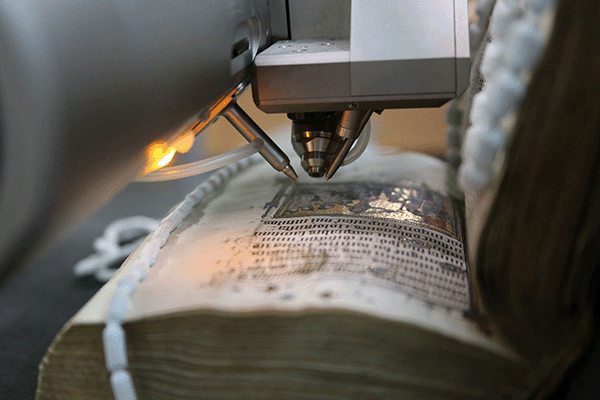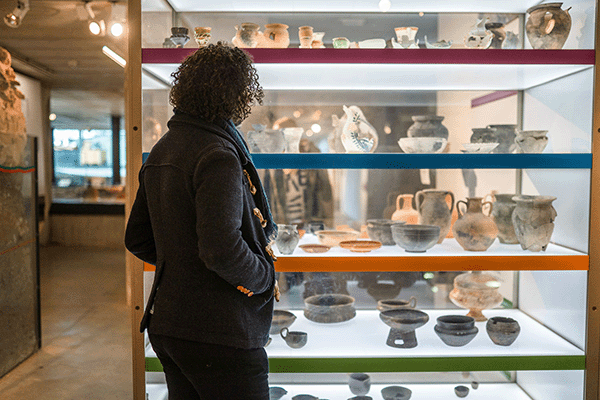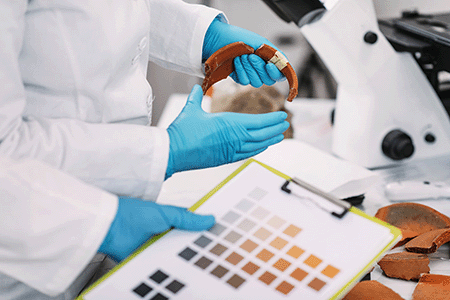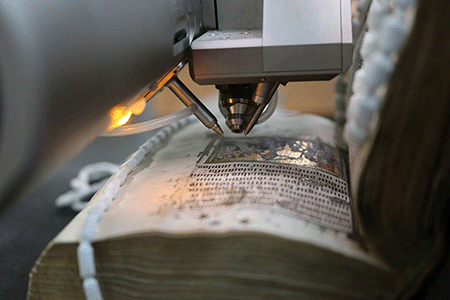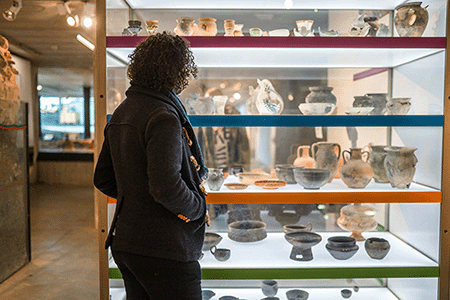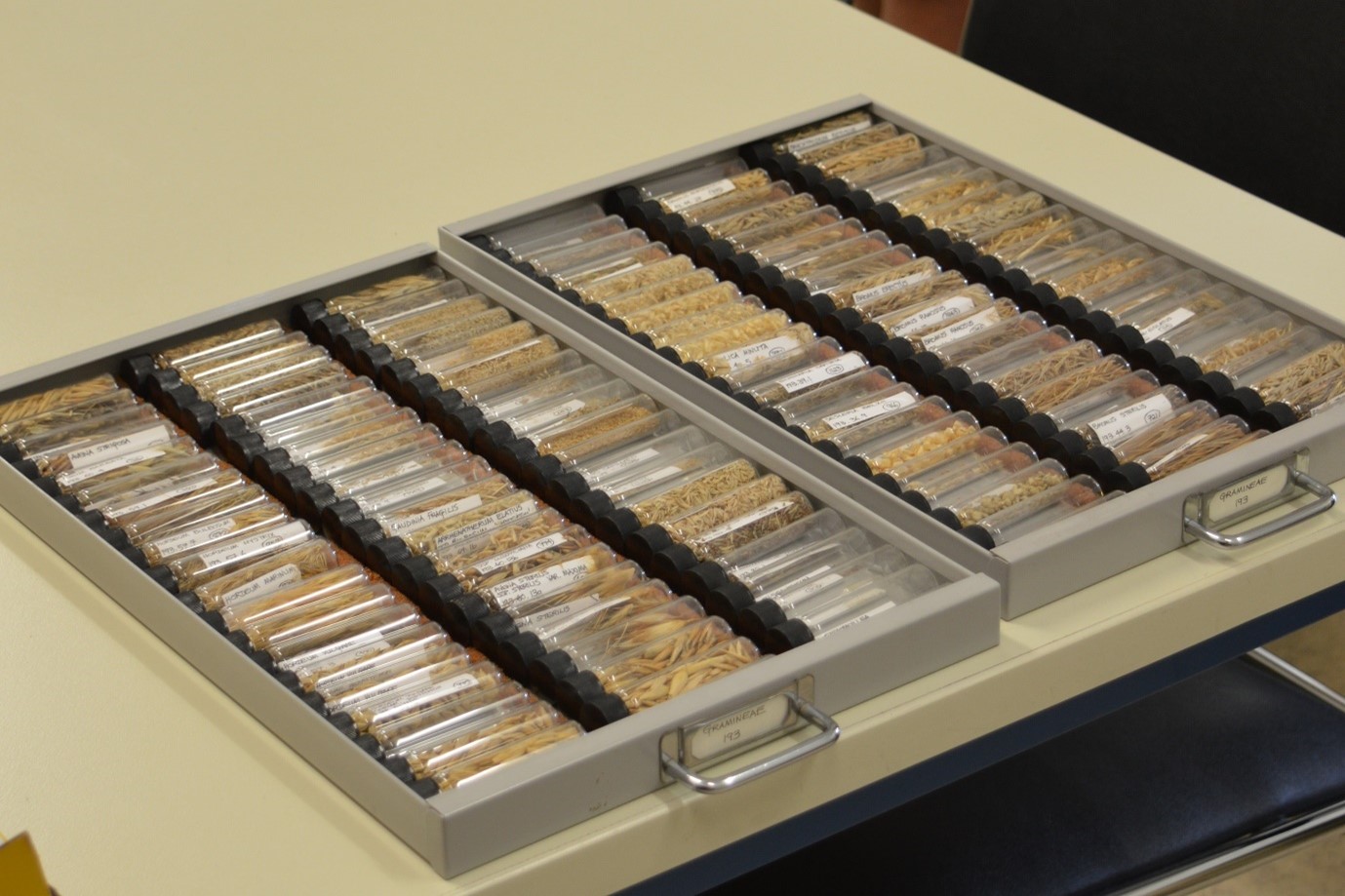Cover image ©British School at Athens
The RICHeS team were recently invited to travel to Athens to meet with members of the team delivering the RICHeS’ funded collections project Transforming access to Mediterranean cultural heritage science collections. This is a collaborative project between Newcastle University, the British School at Athens (BSA), the British School at Rome (BSR), and the British Institute at Ankara (BIAA). The project aims to maximise the potential of the collections curated by British International Research Institutes (BIRI) by establishing a robust heritage science collection management system and digital infrastructure, to facilitate enhanced accessibility and collaborative research. This meeting involved the RICHeS team, the core leadership team for Transforming Access (Professor Mark Jackson (PI) and Dr Maria Duggan, both of Newcastle University, together with BSA project leaders Professor Rebecca Sweetman, Dr Nathan Meyer and Dr Evangelia Kiriatzi), as well as the rest of the BSA team involved in the project.
Modern answers to the human past
The visit began with a tour of the Fitch Laboratory, a world-leading centre for science-based archaeology that has pioneered the application of scientific techniques in archaeological research in Greece. Within the ancient city of Athens, the laboratory is utilising modern science to inform our understanding of the human past in the Mediterranean and beyond.
The RICHeS team were shown how a microscope is used to analyse thin sections for petrographic analysis and capture images of the slides. Thin section petrography is a method used to examine the composition and characteristics of rocks and minerals, and to characterise ceramics. Another technique that is used on site is Wavelength Dispersive X-ray Fluorescence (WD-XRF). Pottery samples are ground into ceramic-glass beads in preparation for chemical analysis using this method, which is used to inform research into the collections.
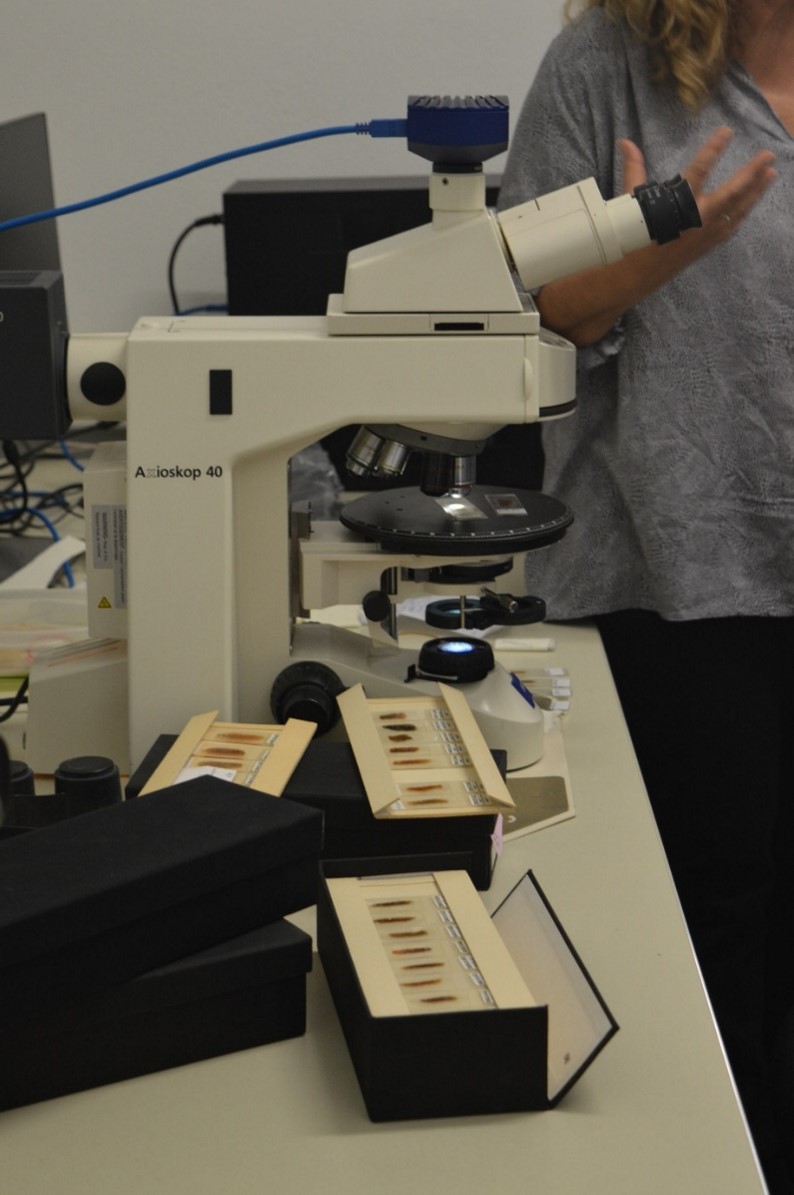
Building the infrastructure to open up collections
The BSA collections hold a wealth of archaeological and ethnographic fieldwork that is supported by analytical heritage science work in the laboratory. The Transforming Access project will build infrastructure to enable to these to be accessed freely by a wider audience. The tour provided a wonderful glimpse into some of these collections, which also included botanic samples utilised by archaeobotanists studying ancient plant use (pictured at the top).
The team were shown several items from the Peter Ucko archive, from the fieldwork of the influential archaeologist and his team, including unpublished studies. These included a map and slides documenting their study of traditional Greek ceramic pottery techniques on the island of Crete. The collection provides vital comparative insights into ancient pottery traditions, as well as insights into the connectivity and movement of people, and techniques across the ancient world.
To build the infrastructure, the Transforming Access project is focusing on a clear subset of the BIRI collections, including traditional Greek pottery production, archaeological collections, botanical samples, geological collections, and a marble reference collection. In creating a standards-based and integrated technology infrastructure it is designed to enable future expansion to open up access to wider aspects of the BIRI collections.
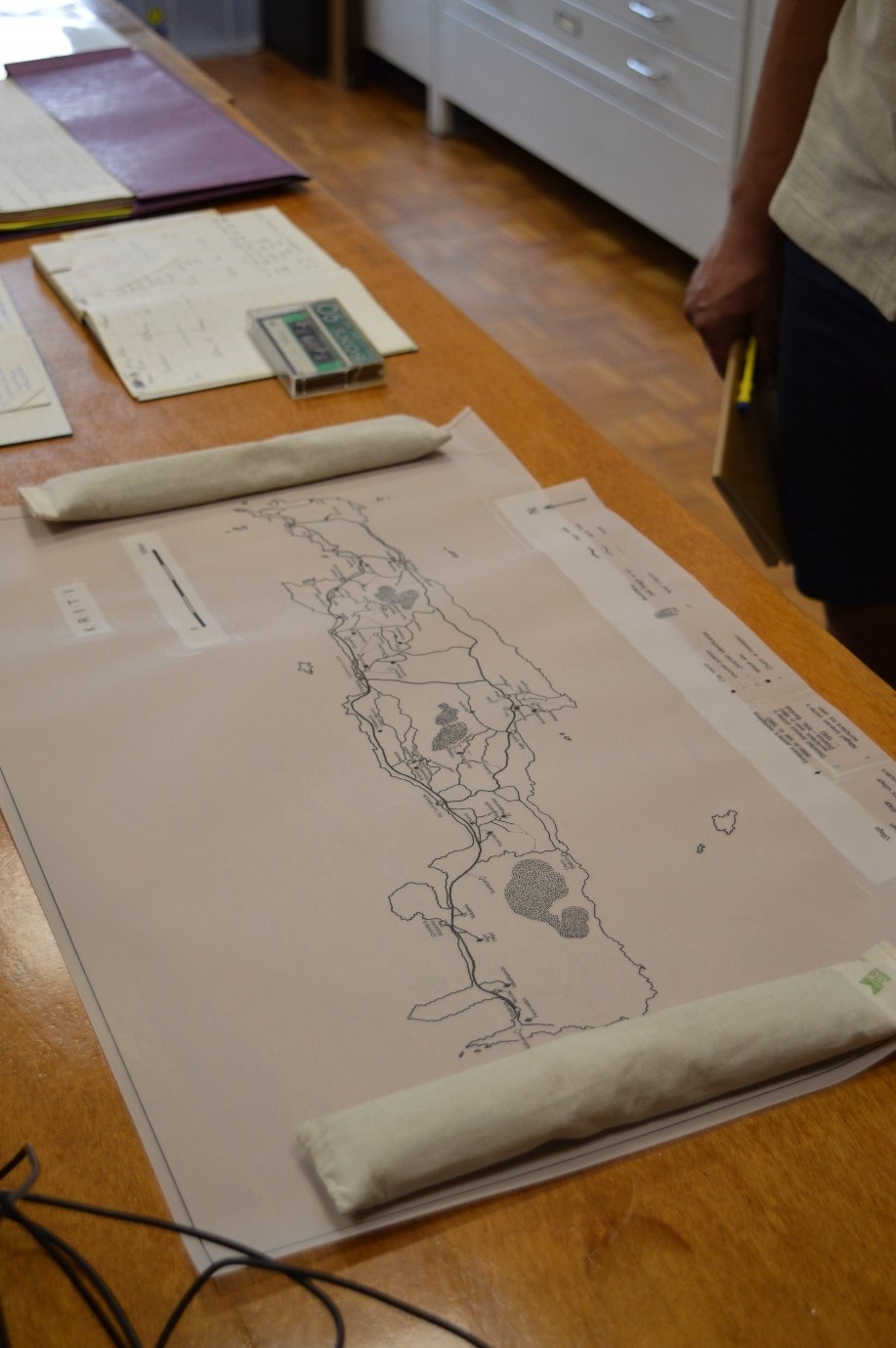
Centring international collaboration
While in Athens, the RICHeS and Newcastle team met with the Heritage Science Data Service (HSDS) team to explore the future integration of this work into the central RICHeS digital research services. The teams had gathered for the Digital Horizons: Embracing heritage in an evolving world conference. As the UK node of E-RIHS, RICHeS is also delighted to be supporting this project for which international collaboration is so central.
The RICHeS team are pleased to see the long-standing collaborative relationships between the BSA and Newcastle University colleagues as well as involvement and interest from wider BIRIs, and look forward to watching these international collaborations grow.
Professor Mark Jackson shares:
“ Over the past century, working under the auspices of the British International Research Institutes (BIRI), leading UK researchers have generated diverse heritage science collections covering archaeological materials and reference collections of botanical and geological samples. These collections are contextualized by rich documentary archives. Together, these collections and archives are of international significance for addressing big-picture questions concerning the human past in the Mediterranean. These fundamental collections, however, remain inaccessible to most researchers.
Our collaborative project will build infrastructure to transform the potential of these unparalleled heritage science resources for international researchers and the public. We will create a standards-based heritage science infrastructure (spatially enabled, linked open data services, research and public education websites) to ensure collections are freely accessible to academic researchers and the public.
We were delighted that UKRI RICHeS could come to Athens to meet the team based at the BSA, as well as team members from Newcastle University. We were very pleased that RICHeS could see some of the fantastic collections held at the BSA, and that we could share a first-hand insight into the enormous potential for new research and collaborations across the BIRIs, through enabling greater access to these unique resources.”

